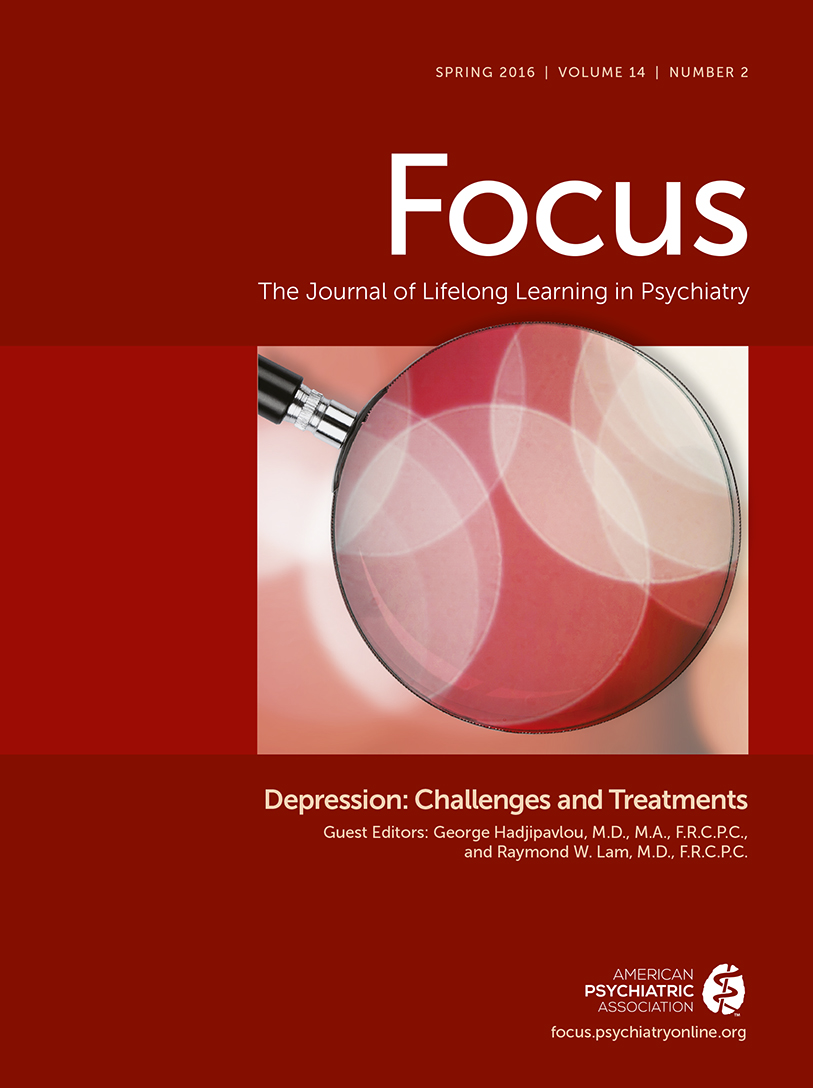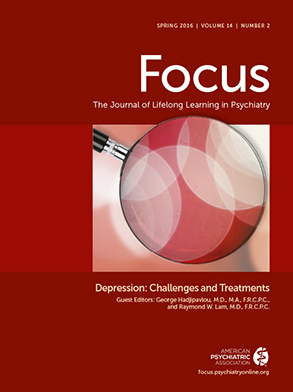Clinical Vignette
Ms. Jones slumped as she entered the mental health section of the University Health Center. Her black hoodie was pulled over her head, with only thin wisps of limp, oily hair protruding to attest to the neglect of her hygiene. Her skin was sallow and her eyes displayed the dark circles of one who is not sleeping well. Her fingernails were gnawed short and shabbily adorned with chipped black nail polish. Dr. Scott knew that Ms. Jones’ chief complaint was depression, but she was taken aback by how completely dejected Ms. Jones appeared.
“Hello, Ms. Jones,” Dr. Scott said, greeting her new patient with a warm smile. The smile was not returned—only the fleeting eye contact and a limp handshake acknowledged that she heard the greeting. Ms. Jones sat morosely in the office chair, her answers to Dr. Scott’s queries slow and deliberate. Dr. Scott asked the usual questions—history, symptoms, risk assessment. All were answered, but Dr. Scott knew that she and her patient had not yet connected. Dr. Scott paused and thought. The pause lasted long enough that Ms. Jones looked up.
“What’s the matter?” she asked warily.
“Oh,” Dr. Scott replied. “You look so sad and depleted. I really want to be helpful. But it doesn’t seem that we are quite connecting—you know, as humans. That’s important.”
There was another pause. “I’m sorry,” Ms. Jones began. “I didn’t mean to make you feel bad.”
“I’m not trying to guilt-trip you. When someone is depressed, they often feel too exhausted to really engage. That’s part of the disorder. I am hoping we may find a way to better connect to help you. How about talking about things that you enjoy—or even things that you used to enjoy, before you got so down. I see you have a Nirvana hoodie. Do you like music?”
Ms. Jones went on to discuss how she had been in a band—she was a singer and songwriter. Her boyfriend was the drummer. Her best friend was the guitar player. “We were pretty good—I mean we got some gigs around town, and it was a good time, a little extra money—ya know.” Dr. Scott’s eyes softened as she listened. A lonely tear began to trickle down Ms. Jones’ cheek.
“Then . . . my best friend stole my boyfriend. Can you believe that?” Ms. Jones blurted, her eyes momentarily fiery prior to glossing over again.
“Wow. I am really sorry that happened to you. No wonder you are so sad and mad.”
“I was mad at first, but not anymore. I probably deserved it anyway. I’m basically a loser. A lonely loser. And my ex-boyfriend and ex–best friend are having the time of their lives without me.”
“I’m glad you came here today,” Dr. Scott replied empathically. “I can understand that you must feel very hurt and lonely. But as for being a loser—no, definitely not. That is your depression talking.” They discussed how being upset and depressed is a normal reaction to such an upsetting event. But then it can “take on a life of its own” with all of the symptoms she was experiencing—poor sleep, no energy, no interest, falling grades, and loss of appetite.
“But therapy and meds won’t bring Joe back to me, so what’s the use?” Ms. Jones asked, her face becoming stony.
“You’re right. But maybe it can bring you back—the talented, smart, spunky young woman that is hiding beneath your shroud of depression.”
“Hey, maybe I’ll use that in a song—shroud of depression—I think maybe you could be a songwriter, Dr. Scott,” quipped Ms. Jones.
Dr. Scott smiled, “I think I’d better stick to the shrink thing. But I’d love it if you started to write and sing again.” A glint of hope entered Ms. Jones’ eyes for the first time that day.
After reviewing issues of safety and making a safety plan, it was agreed that Ms. Jones was safe to go home, and a second appointment was made for later that week. They discussed medications, potential side effects, and the evidence base for therapy and medication.
“I’ve heard of that medication on TV,” Ms. Jones noted.
“Don’t you love how the colors around her get brighter after she starts the medication?” Dr. Scott smiled. “Ah, I knew you had a sense of humor under your hoodie shroud.”
They both laughed spontaneously. “Do you feel like we are connecting yet?” Ms. Jones asked tentatively.
“Absolutely!” Dr. Scott replied.
“Yeah, me too,” Ms. Jones said, as she left the office.

